
Changemaker Authors Cohort Participants
We are excited to announce participants in the inaugural Changemaker Authors Cohort. Each participant is a movement activist and social justice practitioner. Each is also a writer with a paradigm-shifting story to share; a story that we believe can shape how others feel into, think through and respond in to their experiences of the world.
Alongside our partners at Unicorn Authors Club, participants will engage in a year of intensive coaching and support. Our goal is for these changemaker-authors to craft a submittable package for agents and publishers by the end of the program. Learn more about this year's participants below and learn more about the program.
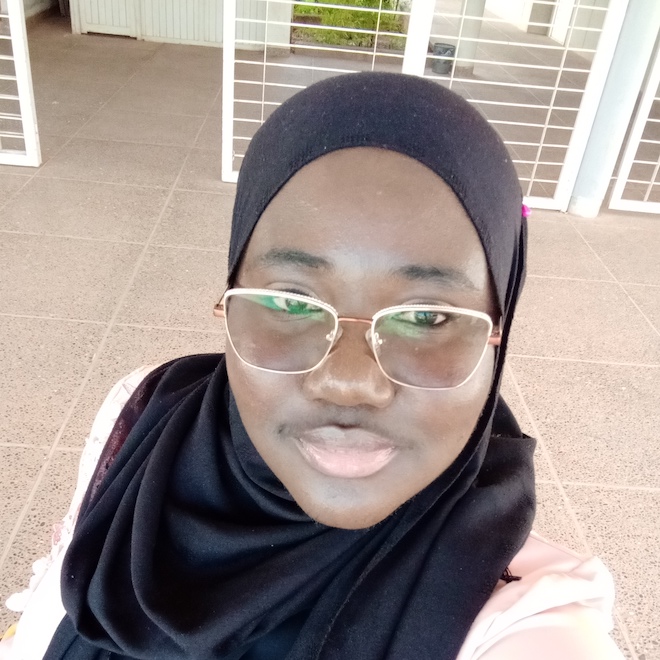
Adam Nyang
Adam Nyang is a Gambian who recently completed her Bachelor’s degree in English Studies at the University of Sidi Mohamed Ben Abdellah, Fes, Morocco. Adam has always been passionate about storytelling and reading. She has recently published a romance novel called Betting on Love under the pen-name Kani Sey with Love Africa Press. Her short story, Faroh, has been longlisted for the 2021 K and L Prize.
Writing Project
The book is a psychological realism novel that will depict youth, sexual awakening, desire, friendship and family. It wll dive deep into the struggles of Penda with mental illness that she lives with for years without a diagnosis. It is only when she travels to Morocco on a scholarship and following a severe depressive episode and a suicide attempt that she gets diagnosed with bipolar disorder.
Pronouns: She/her

Aishah Shahidah Simmons
Aishah Shahidah Simmons produces award-winning cultural work in documentary filmmaking, writing, and public speaking. Her lived experiences as a survivor of childhood and adult sexual violence, a Black feminist lesbian, and a 20-year Buddhist practitioner inform the creation of her work. She is the editor of the 2020 Lambda Literary Award-winning anthology, Love WITH accountability: Digging Up the Roots of Child Sexual Abuse (AK Press), and the producer/director of the 2006-released groundbreaking, Ford Foundation-funded film, NO! The Rape Documentary. She is the recipient of numerous awards and fellowships, including a Soros Media Fellowship, a Just Beginnings Collaborative Fellowship, and the 2019 Breakthrough U.S. Activist Impact Award.
Writing Project
I believe childhood sexual violence within the family is the frontier and foundation for most forms of violence. Love and Justice tells the story of unaddressed child sexual abuse that I experienced in my Black radical family and my subsequent healing journey. Love and Justice connects the dots between intrafamilial violence and interpersonal violence within the context of systemic violence committed against Black people. I do not dismiss nor condone the harm I experienced, witnessed, and also caused in the name of any greater issue. Instead, I seek to understand the harm that often lives in the shades of grey with deep compassion, understanding, and love WITH accountability® to heal and stop the cycles.
Pronouns: She/her
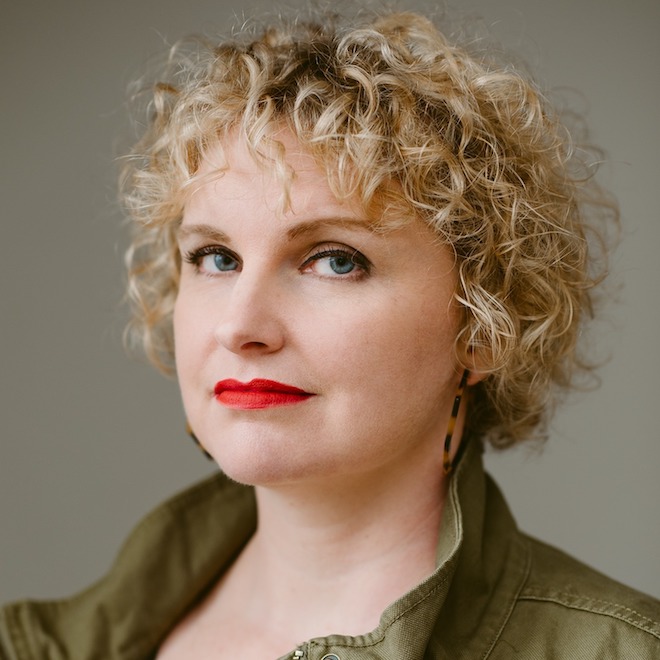
Jessica Beth Howard
Beth Howard is the Rural Kentucky Campaign Director for Showing Up for Racial Justice (SURJ) where she is leading base building organizing in majority white communities to bring her people into working class multiracial alliances and pull them away from the Right and white supremacy. She is from a working-class family in rural Eastern Kentucky and she has over 15 years of experience in grassroots community organizing and leadership development. She is deeply committed to liberatory organizing strategies to build a multiracial poor-working class people’s movement in Appalachia and the American South. She lives in Lexington, KY with her partner Andrew, their faithful dog Sandy, and their defiant cat Tadpole.
Writing Project
The working title of my book is Rednecks for Black Lives. The book is a political memoir centered around my story growing up working class in a majority white rural community in Appalachia. It is the story of how I became a revolutionary, a self proclaimed “Redneck,” and an organizer. The memoir will weave together stories from my life, including lessons and strategy from my 15 years of organizing experience. The book culminates in a call to action for poor and working class white people in Appalachia to take up the call for racial justice and class solidarity.
Pronouns: She/her
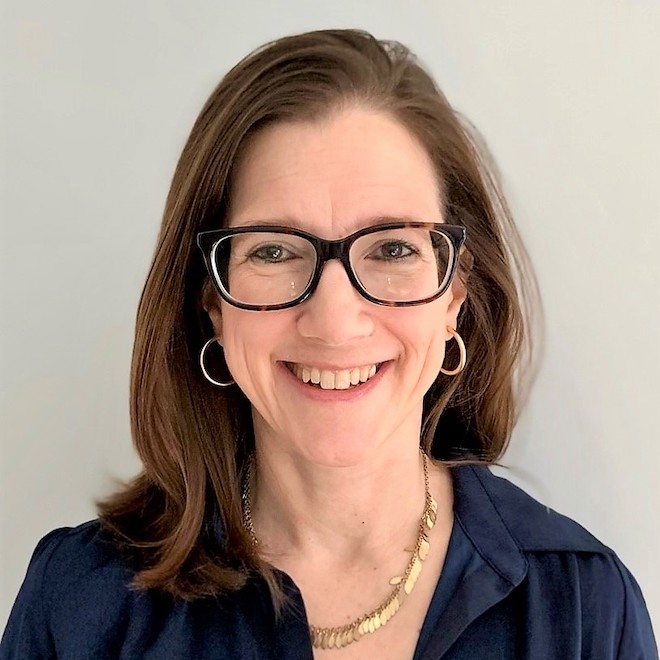
Catherine Hyde Townsend
Catherine Hyde Townsend has advocated for the inclusion of people with disabilities in human rights and social justice philanthropy for over 15 years. With deep knowledge about how disability connects with gender and racial justice and sexuality and reproductive rights, she is a recognized thought leader on disability inclusion. Her own disability experience has fueled an intimate understanding about patriarchy, beauty standards, and ableism. She currently serves as the Senior Advisor for Disability Inclusion at the Ford Foundation where she advises leadership on organizational change to advance disability inclusive policies, practice and programs. She often serves as a trusted advisor to private donors, NGOs, and UN agencies.
Writing Project
Tentatively titled Moving Mountains: Building Power from the Margins, this co-authored book will document the journey to build the Disability Rights Fund (DRF) embodying "nothing about us without us." DRF's story - not always easy - is the story of shifting decision-making to people with lived experience. From the Fund's modest start, it has provided more than $40 million in funding to the disability rights movement, modeling how philanthropy can (and must) change the way we work, who we listen to, and to whom we are ultimately accountable. The book will illustrate what is possible when we have structures that recognize the power of all individuals and collective iteration. By including insights of disability rights activists who have been collaborators and friends, the book will uplift the disability rights notion of interdependence and the reality of intersectionality.
Pronouns: She/her
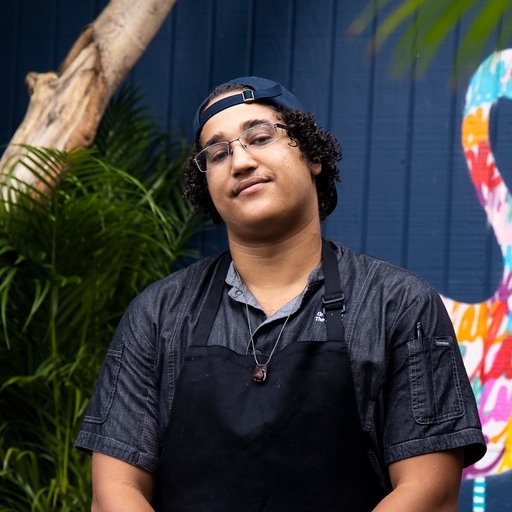
Devon Hamilton
Devon Hamilton is a food justice advocate with a deeply intersectional background in community organizing, youth education, sustainable agriculture, and the culinary arts, among other roles. He is the owner of a local barbecue and gardening business called Grillin' For The People (G4TP), that offers community resources and food services primarily in the Leimert Park and South Central LA area.
Writing Project
The Inkwell Beach Series is a collection of stories and recipes inspired by historic Black beach sites (Inkwells) across the United States and elsewhere. Pre-civil rights era, Black people faced a spectrum of experiences accessing public beaches, most often being restrictive or violent by design. These stories, and the range of their political and cultural influence, reverberate throughout Black history and experience in ways that affect our relationship with land and the environment to this day. This history, and the reimagination of Black-beach food culture, will be documented following a national tour visiting over a dozen Inkwell sites, and interviewing various key voices associated with their influence.
Pronouns: He/him
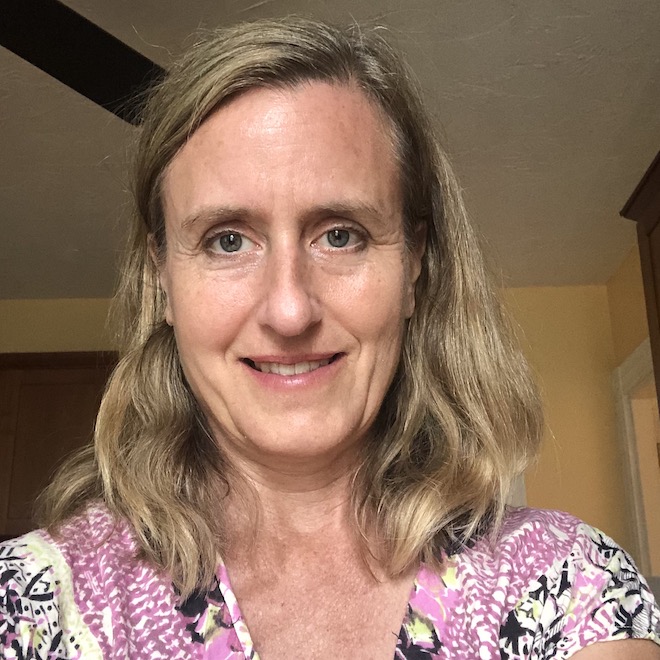
Diana Beth Samarasan
Diana Samarasan has spent the last two decades advancing disability rights at global levels. She was the founding Executive Director of global participatory grantmakers, the Disability Rights Fund (DRF) and the Disability Rights Advocacy Fund (DRAF), which have provided more than $40 million to disability rights movements across the Global South. DRF is one of the early global grantmakers to embody "nothing about us without us" and include people with lived experience - people with disabilities - at all levels of decision-making. Diana’s work has been featured in numerous publications, most recently in the book, Letting Go: How Philanthropists and Impact Investors Can Do More Good by Giving Up Control.
Writing Project
Tentatively titled Moving Mountains: Building Power from the Margins, this co-authored book will document the journey to build the Disability Rights Fund (DRF) embodying "nothing about us without us." DRF's story - not always easy - is the story of shifting decision-making to people with lived experience. From the Fund's modest start, it has provided more than $40 million in funding to the disability rights movement, modeling how philanthropy can (and must) change the way we work, who we listen to, and to whom we are ultimately accountable. The book will illustrate what is possible when we have structures that recognize the power of all individuals and collective iteration. By including insights of disability rights activists who have been collaborators and friends, the book will uplift the disability rights notion of interdependence and the reality of intersectionality.
Pronouns: She/her
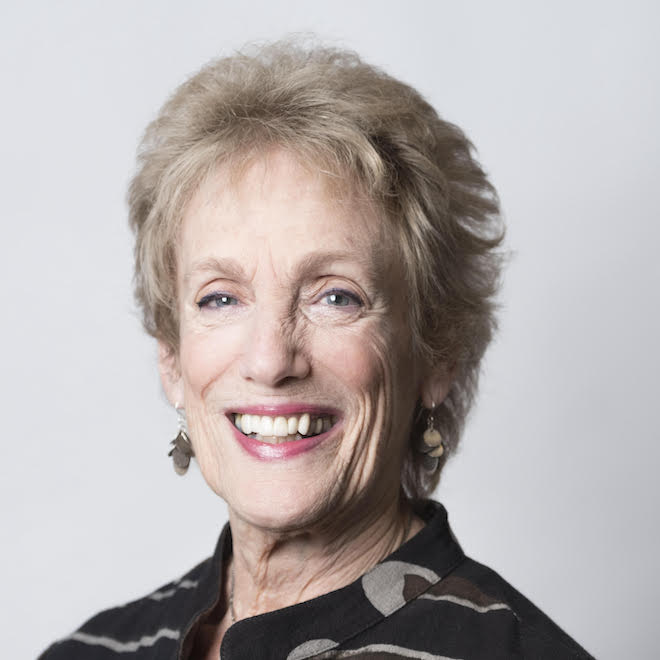
Ellen Bravo
Ellen Bravo is a long-time activist and author who's spent decades organizing among low-wage women from a social justice feminist framework. She's written several non-fiction books, including Taking on the Big Boys. Her first novel, Again and Again, dealt with date rape and politics. Her second, Standing Up, written with her husband and due out March 8, highlights moments when workers band together to stand up to oppression.
Writing Project
Americanida (the Greek word for an American woman) is the story of a woman finding her own voice in a world of contradictions. Miriam Cohen Grigorakis is the only woman, only non-Greek and only Jew in a Montreal group organizing against the Greek dictatorship in the late 1960s. Her emerging feminism is viewed as a form of American imperialism. As she seesaws between being Miritsa Grigorakis in the Greek community and Miriam Cohen in the rest of her life, she braces for the day her exiled husband will be able to return to Greece and wonders who she will be if she goes with him.
Pronouns: She/her
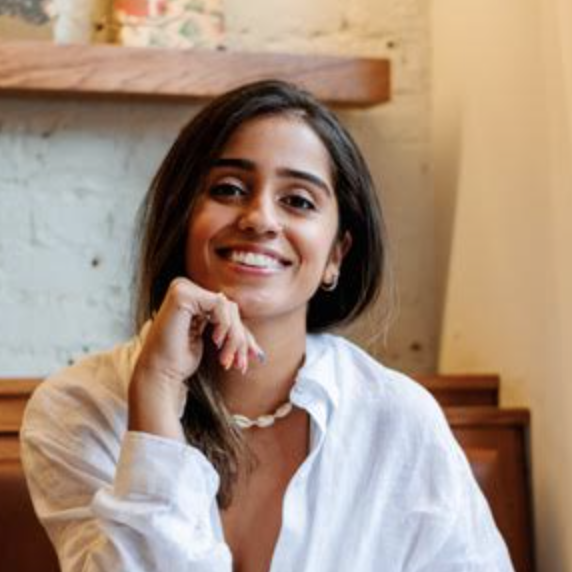
Emily Ramirez
Emily Ramirez is a queer Dominican woman, born and raised in NYCHA housing in Brooklyn, and is currently a digital organizer at Families Belong Together and a social justice teacher/curriculum developer at the Sadie Nash Leadership Project and at Girls Be Heard. She holds a Bachelors in creative writing and comparative literature, and has published works in Huizache, Girls Write Now: Two Decades of True Stories From Young Female Voices, and the journal, Wizards in Space.
Emily's an avid reader and facilitates a monthly book club that centers the fiction of women of color through her book review Instagram at @readwithemily!
Writing Project
Ellie is a young Dominican American 12-year-old girl who is secretly falling in love with a girl while on a summer vacation visiting the campos of her family’s hometown in Santiago, Dominican Republic. Though shy, Ellie is steadfast in fighting her older brother Johnny's controlling nature that keeps her from being comfortable in her own skin and coming out to the family she loves. During their time in the motherland, Johnny terrorizes Ellie with tales of how “El Cuco'', the blood-sucking demon Dominican children grow up afraid of, will come find her if she steps into the depraved inclinations he is running from himself. As Ellie challenges the machismo that torments her growing desires, she grows into herself and her queerness, and in doing so discovers her voice.
Pronouns: She/her

Grace Jahng Lee
Born stateless in Seoul and raised on four continents, Grace Jahng Lee is a writer, editor, harm reductionist, and public health practitioner who has worked for two decades with people experiencing homelessness, queer/BIPOC/immigrant communities, sex workers, and people who use drugs. Fragmented identities, memory, addiction, intergenerational trauma, and home are central themes in her writing. She has been awarded residencies, fellowships, scholarships, and grants from VONA, Kundiman, Yaddo, Brooklyn Arts Council, NYFA, Hedgebrook, Hambidge, and the Jerome Foundation, among others. She is a contributing editor at Guernica and the creative nonfiction editor and health editor at Hyphen.
Writing Project
Grace Jahng Lee is writing a book about a Korean immigrant family struggling to piece together fragmented lives. The story is situated within intergenerational histories of colonization by Japan and the U.S. military. What does it mean to belong? How do we find home and community?
Pronouns: She/her/they
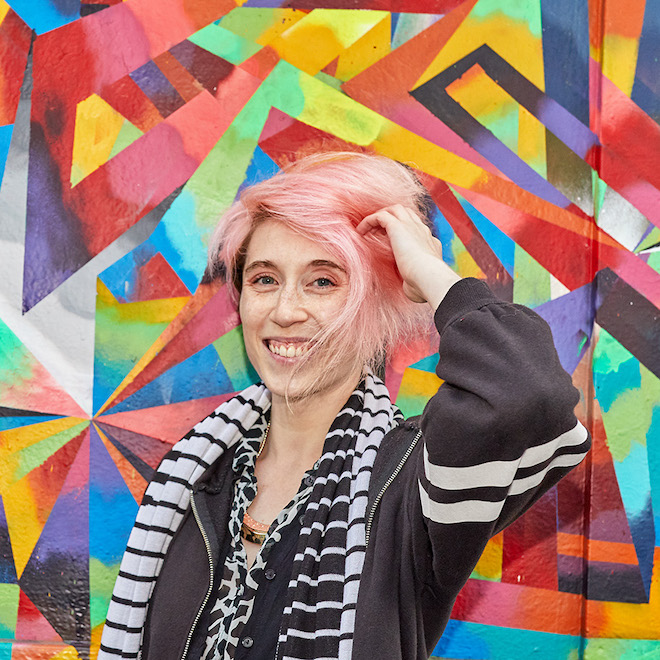
Hans Lindahl
Hans is a writer and artist known for expansive commentary on intersex issues. This work builds on the blessing of a childhood spent among multiple generations of intersex activists, and formative experiences in Bay Area queer comics and activism communities.
While in California, Hans’s organizing and digital strategies as the former Communications Director of interACT helped pass the country’s first legislation denouncing infant genital surgeries. Hans’s articles, videos, and comics promoting affirming and non-medical views of intersex people have been translated into four languages.
Following this, Hans aims to write a graphic novel that will make a banned books list.
Writing Project
How do you come of age when puberty never happens? Karyotype is a YA graphic novel romance that tackles intersex medical abuse and the variety of forms queer love can take.
Pronouns: Hans
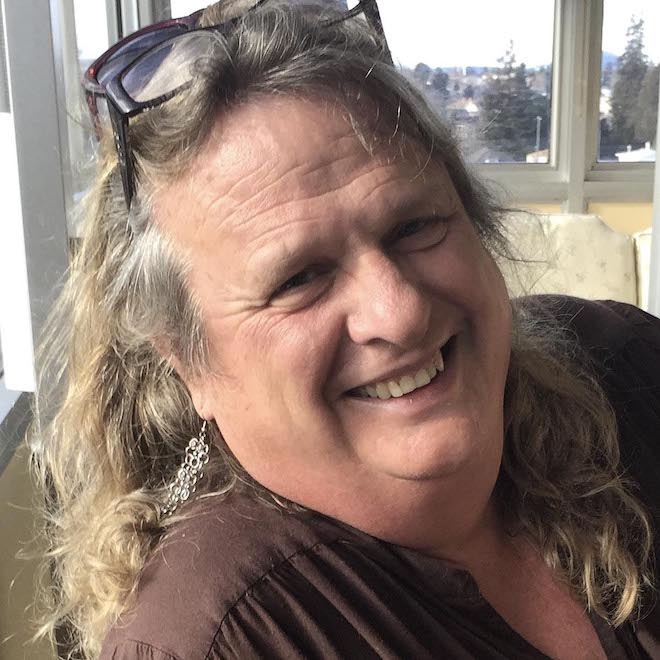
Jess Clarke
Jess Clarke is a genderqueer writer, performer, and organizer from Oakland, California. They’ve been on the frontlines and in the back offices of justice struggles for the last half-century. From organizing a cultural center in San Francisco’s Tenderloin in the 1980’s, doing solidarity with the Zapatistas in the 90s, editing Race, Poverty & the Environment in the 2000s, to launching Radio Reimagine in the 2020s, liberation of all kinds —personal, social, economic and political—is the common goal of their projects. Jess has been a featured performer at the Oakland Museum, Oakland Public Library, Marsh Theater SF & Berkeley, Story Slam Oakland and Berkeley Repertory School of Theater.
Writing Project
Imagining Liberation follows a nonbinary Irish-Catholic kid through the permutations of their identity through the decades. The memoir kicks off with the narrator exploring gender-free names in a 1960s Catholic church service, fighting for peace in Vietnam, and then investigating androgyny and sexuality while living alternately in KKK Maryland with a 13 member “blended family” and with their mother’s various hippie collectives in Mendocino and Washington DC. From these formative roots, the narrator launches into a broader world of political and social movements: confronting Henry Kissinger on the Columbia campus; challenging South African apartheid; co-creating a cultural center in San Francisco’s Tenderloin district; and other organizing breakthroughs. The book deals with gender identity, racial justice, and sexual assault but grounds these big themes in compelling stories that stay close to the narrator’s life.
Pronouns: They

Malkia Devich Cyril
Malkia Devich Cyril is a writer, public speaker and award winning activist on issues of digital rights, narrative power, Black liberation and collective grief; and is the founding and former executive director of MediaJustice — a national hub boldly advancing racial justice, rights and dignity in a digital age. After more than 20 years of media justice leadership, Devich-Cyril now serves as a Senior Fellow at both Media Justice and at Philanthropic Initiative for Racial Equity.
Writing Project
Through a combination of personal storytelling and political essay, the book Radical Loss: Black Grief Can Change the World refutes the notion of privatized grief and proclaims American grief as both a source of generational trauma and inequality and as a powerful driver for new grief-informed approaches to civil rights that can accelerate fights for racial justice and strengthen democracy beyond our wildest dreams. Autobiographical in nature, this creative non-fiction book tells the tumultuous story of a Black activist’s journey with personal loss alongside the nation’s collective journey with highly charged public loss. Poetic, deeply personal and interdisciplinary, Radical Loss attempts to answer the question: how can a polarized nation in the midst of multiple crises model a politicized and radicalized grief that can transform loss into shared grievance with the power to forge belonging, and construct new meaning and conditions that can bring about the democracy we all deserve.
Pronouns: They/them
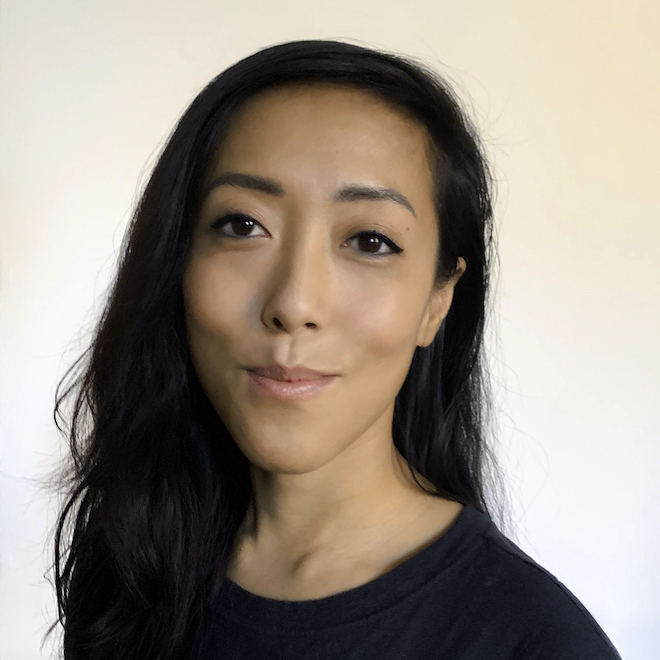
Panthea Lee
Panthea Lee is a strategist, curator, facilitator, and mediator working for structural justice and collective liberation. She builds and supports coalitions of community leaders, artists, healers, activists, and institutions to win dignity and joy for all. Panthea currently serves as the Executive Director of Reboot, and as a fellow at the Stanford Digital Civil Society Lab and at Arizona State University’s Center for Science and Imagination. She is a pioneer in guiding diverse coalitions to tackle complex social challenges, with experience doing so in over 30 countries with partners including UNDP, CIVICUS, Wikimedia, MacArthur Foundation, the City of New York, as well as civil society groups and governments from local to federal.
Writing Project
In Joyous Solidarity is a meditation on awakening, a call for defiant hope amidst debilitating despair, and a roadmap for how we come together before our world falls apart. Ethnographer, organizer, and mediator Panthea draws upon her experience fighting for our shared humanity across 30+ countries—from Afghanistan to Zimbabwe to the United States—to deconstruct the lies within dominant theories of social change, and to explore how we win not just reform but revolution. She excavates her Taiwanese ancestral wisdom, and weaves it with research and practices from radical history, healing justice, collective care, and liberatory art, to illuminate a path towards structural justice.
Pronouns: She/they
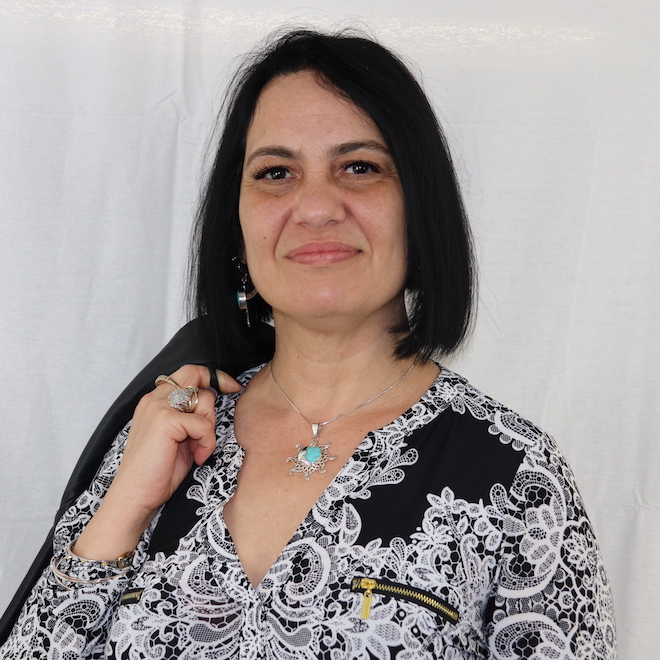
Rosemary Rivera
Rosemary "Rockie" Rivera started her career in the movement as a directly impacted volunteer. Growing up as a New YoRican in the system, Rosemary experienced first hand the injustices within multiple systems. In 2005 joined Citizen Action where she learned of systemic oppression and how it works. Rosemary began as the community organizer and in 2019 became the Co-Executive Director of Citizen Action of New York and the Public Policy and Education Fund. She serves on several boards and is the state chair of the Alliance for Quality Education.
Writing Project
This book proposal is a memoir that would take the reader on a journey into the two worlds that I have lived in - the streets and the movement. There are many similarities and stark differences between those worlds when it comes to power, self-interest, loyalty, and the relationship with money. My story is one of an 11 year old heroin addict from NYC who became the Co-Executive Director of one of the largest grassroots social and political organizations in New York state and how I found a purpose driven life in a world filled with every "ism" that predicted I would only be a statistic. There have been points in this journey where I have found the moral superiority of one world over the other is debatable.
Pronouns:
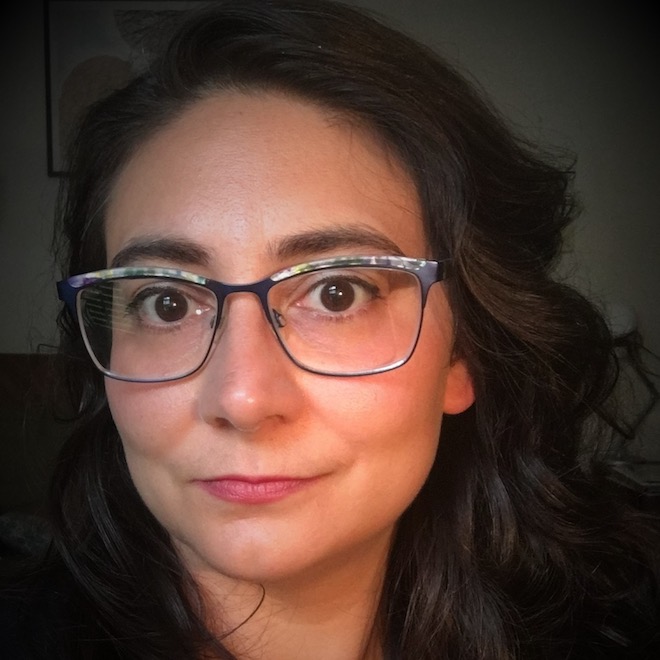
Roula AbiSamra
I'm the queer eldest child of Arab immigrants, a brown girl in the South, a reproductive justice & abortion access organizer out of Catholic school. My whole life, people have wanted to say I don't belong. But I believe it’s our sacred duty to create spaces where belonging and truth-telling coexist.
Writing Project
Graphic memoirs like Persepolis and Fun Home touched me deeply and made me feel that my personal and family stories might have meaning for others, too. After the ceasefire of 1990, we visited our family in Lebanon as often as we could, until 2006 when sustained Israeli air bombing caused us to evacuate. That wasn't my last visit to the old country, but it began years of survivor guilt and search for meaning—compounded by my hometown being leveled by Hurricane Katrina just months earlier. Through activism and organizing and truth-telling, I went on to forge a path full of meaning. But for many years, I kept within myself the stories of the bombings, the travels, my ancestors, my young siblings, learning multiple languages, learning I was different, learning I belonged, and much more — the stories of being a young brown child of the Middle East in the American South.
Pronouns: She/they
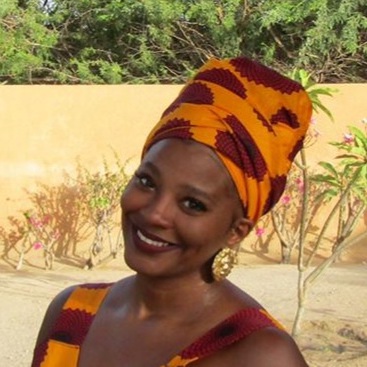
Shannon Cumberbatch
Shannon Cumberbatch is the founder and facilitator of Uproot.ed, programming committed to uprooting oppression through education and action. She has several years of experience in managerial leadership, establishing equitable policies and practices, and transforming organizational culture across institutions. Shannon also has experience creating comprehensive training curricula as an educator, and advocating for marginalized people ensnared in oppressive legal systems as a public defense attorney. Shannon’s approach to anti-oppression work is primarily informed by her own lived experience as a Black woman directly harmed by institutional and interpersonal acts of oppression, as well as her study of critical race theory, radical Black feminist/womanist tradition, teachings of grassroots community organizers, disability justice advocates, PIC abolitionists and transformative justice practitioners.
Writing Project
The working title of this book is Uprooting Inequity in Your Institution, a nonfiction instructive resource for those seeking to uproot oppression in their ethos and implement more equitable policies and practices. The subject matter will explicitly discuss how racism, anti-Blackness, xenophobia, cisheteronormativity, ableism, classism, elitism and the intersection of each permeate common policies and practices embraced in institutions. More specifically, the text will unpack oppressive conventions and offer tools for transformation in recruiting, hiring, and retention; crafting institutional policies; cultivating an anti-oppressive office culture; and sustainably supporting marginalized peoples within the institution, including amid uprisings against systemic oppression in the world. The content will be be rooted in principles borne out of radical Black feminist tradition, prison industrial complex abolition, transformative justice, and disability justice frameworks. I will incorporate use of story-telling/narrative weaving informed by my own and other common experiences to illustrate how inequities manifest within institutions and impact people pushed to the margins.
Pronouns: She/her
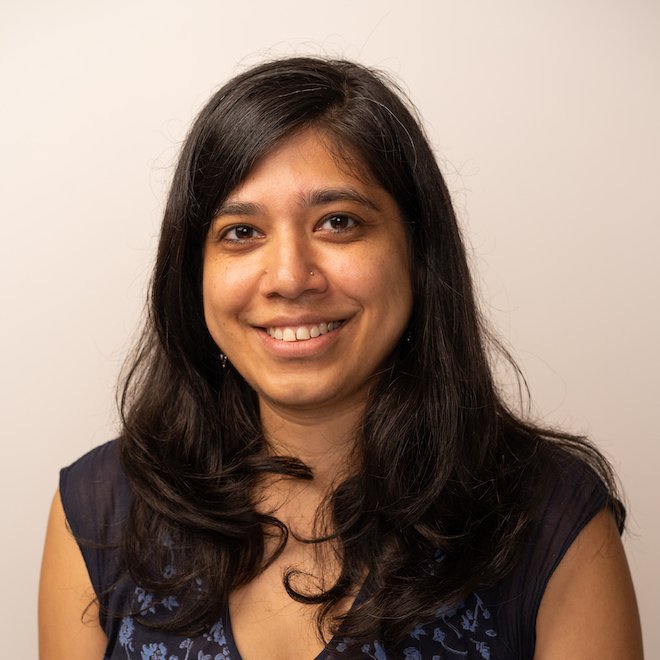
Silky Shah
Silky Shah is the executive director of Detention Watch Network, a national coalition building power to abolish immigration detention in the US. She has worked as an organizer on issues related to immigration detention, the prison industrial complex, and racial and migrant justice for 20 years.
Writing Project
My book project contends that the prison industrial complex and U.S. immigration enforcement policy are not separate, as commonly understood, but intertwined systems of repression, and that to fully achieve justice for immigrants we must embrace prison abolition. The book provides an anatomy of the last 40 years of immigrant incarceration, an analysis of the efforts and failures of the immigrant rights movement to come to grips with increasing criminalization, and strategies for dismantling both systems.
Pronouns: She/her

Trevor Smith
Trevor Smith is a writer, researcher, and strategist focused on topics such as racial inequality, wealth inequality, reparations, and narrative change. He is currently the Director of Narrative Change at Liberation Ventures, a field builder fueling the movement for Black-led racial repair, where he is building the Reparations Narrative Lab (RNL). The RNL is a first-of-its-kind creative space designed to build narrative power behind reparations. He is also the creator, curator, and editor of a newsletter titled Reparations Daily (ish).
Writing Project
Lethal Stereotypes is a nonfiction novel that illuminates how the stories we have told about race have always served to degrade, dehumanize, or exploit Blackness and have led to the creation of harmful and dangerous narratives. When aggregated, these harmful narratives coalesce to create a lethal environment where Black lives are taken easily. Through the life stories of various Black people, Lethal Stereotypes shows how the stories we tell are more dangerous than we might think.
Pronouns: He/him
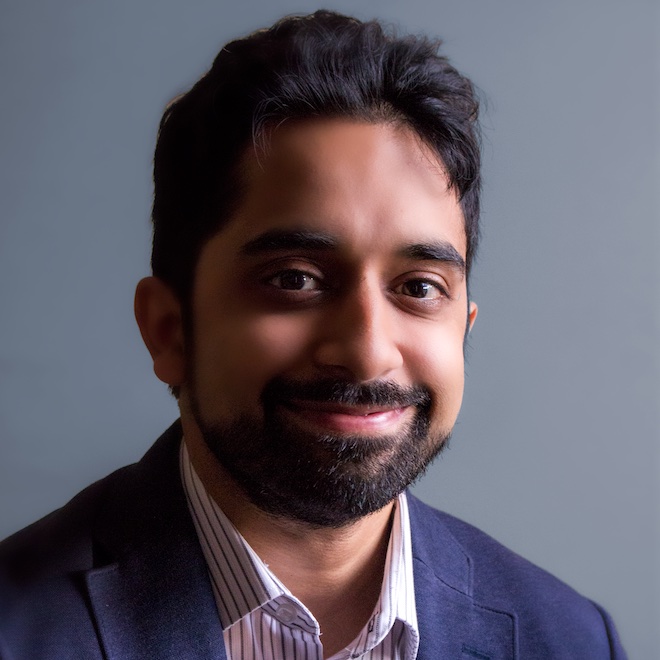
Vinay Krishnan
Vinay Krishnan is a writer, organizer, and attorney living in Brooklyn. His writing has appeared in Barren Magazine, The Forge, SLAM Magazine, and elsewhere.
Vinay is the National Field Organizer for the Center for Popular Democracy, where he works to combat the overdose epidemic, achieve global vaccine equity, and create a universal healthcare system in America.
Writing Project
As we work to create a world in which every one of us can thrive, we must confront the ableist roots of every system and structure in this country. This book of essays will examine how ableism drives capitalism, white supremacy and incarceration. These essays will push us to transform these systems and create a new world grounded in values of disability justice, one that honors and protects the inherent dignity of every person.
Pronouns: He/him
